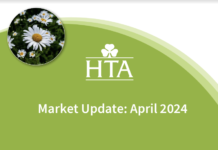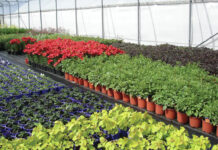The Minister for Agriculture, Food and the Marine, Charlie McConalogue T.D., today welcomed the launch of a public consultation on the Strategic Environmental Assessment of the draft Agri-Food Strategy to 2030. The draft was prepared by a committee of stakeholders, chaired by Mr Tom Arnold, and facilitated by the Department of Agriculture, Food and the Marine.
Referring to the draft strategy, the Minister said, “I want to thank the Stakeholder Committee and the Chair, Tom Arnold, for their work on this document. It envisions Ireland as a world leader in Sustainable Food Systems over the next decade. It considers many of the issues that will be central to the development of the sector over the next ten years. These include a strong focus on improving primary producer viability and farm incomes; the importance of ensuring that our food offering continues to be high-quality, safe and healthy; the need to embrace innovation and improve competitiveness; and the requirement for an environmentally sustainable agri-food sector.
“The draft strategy’s mission-led food systems approach has sustainability in all its forms, environmental, social and economic, at its core.”
In parallel with the work of the Committee, a Strategic Environmental Assessment (SEA) and Appropriate Assessment (AA) have been prepared independently to determine the likely significant effects on the environment of implementing the Strategy. As part of this environmental assessment process, an eight-week public consultation will now take place to seek views on the SEA, the AA and the draft Strategy itself.
The Minister concluded, “I encourage all those interested to participate in the public consultation and make their views known. The Committee will take these views into account before the Strategy is finalised. I look forward to as many people as possible participating in this consultation”.
Minister of State, Senator Pippa Hackett said, “Achieving climate neutrality by 2050 will be challenging, and will certainly require changes in the way our land is used and farmed, but it will deliver gains as well. To maximise these gains, we need everyone to contribute, and to pull together, so I urge all parties to take part in this consultation. This strategy sets out practical actions for the sector to become climate neutral by 2050; but it is also about restoring and enhancing biodiversity; improving water quality; and developing diverse, multi-functional forests. We need to hear from everyone interested in these issues.”
Minister of State Martin Heydon T.D., who has responsibility for Research and Development, Farm Safety and New Market Development, said, “This draft Strategy aims to build on our positive international reputation as a supplier of quality, safe, nutritious and sustainably-produced food and drinks. I am pleased to see the emphasis on research, which will be a key enabler for an innovative agri-food sector, driven by technology and talent. I believe it is very welcome that the Strategy considers the welfare of our primary producers and recognises the importance of supporting the health, safety and wellbeing of the farming and fishing communities, and the challenges of isolation and mental health.”
The Government is committed to overall greenhouse gas emissions reductions of 51% from 2021 to 2030 and to achieving climate neutrality no later than 2050, taking into account the special role of agriculture and the distinct characteristics of biogenic methane. Achieving this ambition will be challenging and require changes in all sectors of the economy, including agriculture. It can also deliver new sources of family farm income and rural economic benefit.
This stakeholder-led strategy is a significant milestone which will feed into the Government process for establishing sectoral emissions ceilings under the Climate Action Bill. When finalised this summer, the strategy will need to be consistent with the ambition set out for agriculture in the Programme for Government and the Climate Action Plan 2021, and the sectoral targets to be adopted under the Climate Bill.










